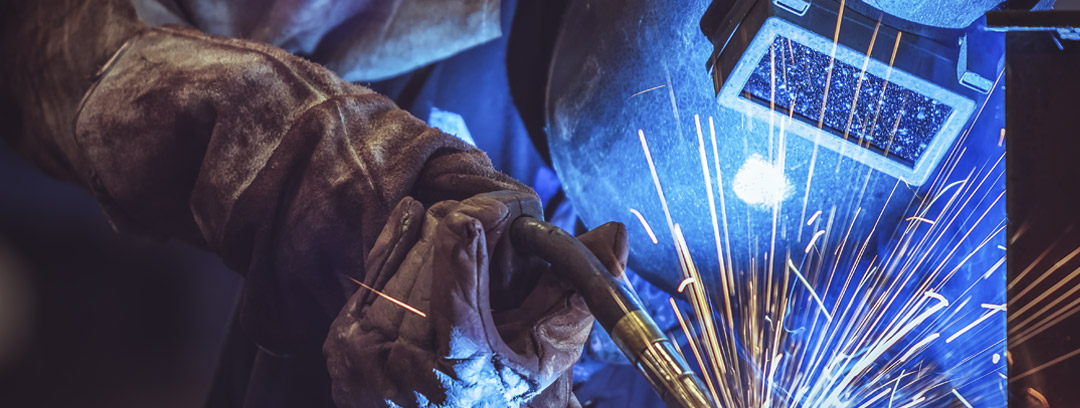April is National Welding Month, a time to recognize the skilled welders who help manufacture products, build structures, and keep our nation growing.
While welding is an essential career, these individuals face potential safety hazards every day. In fact, according to the Occupational Safety and Health Administration (OSHA), over 500,000 U.S. workers are at risk for welding-related injuries. From exposure to fumes and gas, to burns, and even electrocution, it is important welders understand what to do (and what not to do) to protect themselves and others from serious injuries.
In honor of National Welding Month, check out these safety tips welders can implement to keep themselves out of harm’s way.
Tip #1 – Wear the Right PPE
Welders are at-risk of being exposed to harmful fumes, gases, heat, radiation, loud noises, and more. So, wearing the proper personal protection equipment (PPE) is key to keeping safe from these hazards.
To prevent heat and radiation injuries, welders are encouraged to wear flame-resistant clothing, welding gloves, welding sleeves, steel-toed boots, as well as welding hoods. UV safety glasses with side shields under their welding helmets are also recommended for increased eye protection. “Welder’s flash” is real and leads to swollen, painful eyes and in some instances permanent retinal damage, so proper eye protection is critical.
In addition to the PPE noted above, to avoid inhaling harmful fumes and gases emitted during welding, fume extractors or respirators can be utilized. Lastly, working in a fabrication shop can be loud, so anytime individuals are exposed to extreme noises for an extended period, remember to protect hearing by wearing earplugs.
Understanding which personal protection equipment to utilize and ensuring it is used properly can play a large role in preventing welding-related injuries.
Tip #2 – Maintain & Check Welding Equipment
When it comes to welding safety, it is better to be safe than sorry. Even if your welding equipment has been working fine, taking a few minutes to check it each day can never hurt. Keep an eye out for frayed wires, leaking hoses, dust and debris, and common wear and tear. Performing regular maintenance on your welding equipment will not only ensure it is working properly, but also reduce hazards.
Tip #3 – Know Your Environment & Keep It Clean
Welders should always be aware of their environment. Knowing where tools and materials are located not only increases efficiency, but also in the event of an emergency, knowing where the fire extinguisher, first aid kit, and emergency exits could be lifesaving. Having a dedicated workspace as well as a map that highlights where to find key safety equipment is vital to a welder’s safety.
Plus, in a welding shop, workspaces should be kept clean and free of clutter. If extension cords are laid haphazardly across the floor or trash from lunch is left in the shop, this could put others at risk for trip and fall injuries, and fire as sparks from the welding arc can travel several feet and could unintentionally fall on flammable material that is laying around.
Tip #4 – Prevent Electric Shock
While many individuals may associate welding with burn or eye injuries, electrocution is a very serious risk welders could face. Welding with wet or sweaty gloves that come in contact with the live parts of welding equipment and the workpiece can lead to electric shock. To prevent electrocution, welders should always check to make sure their gloves are dry as well as wear insulated clothing before beginning work.
Tip #5 – Continued Education & Training is Key
As technology and equipment evolve, so will the welding industry. It is critical for welders to regularly participate in certification programs and safety trainings to ensure they are up to date on the latest trends and safety practices to keep not only themselves, but other welders they work with safe.
Uncompromising Safety
In honor of National Welding Month, JGM encourages all welders to make safety job number one. Welders play an essential role in manufacturing products and building structures, so keeping these skilled individuals healthy and safe is important. To learn more about how JGM fosters a culture focused on uncompromising safety, click here.
